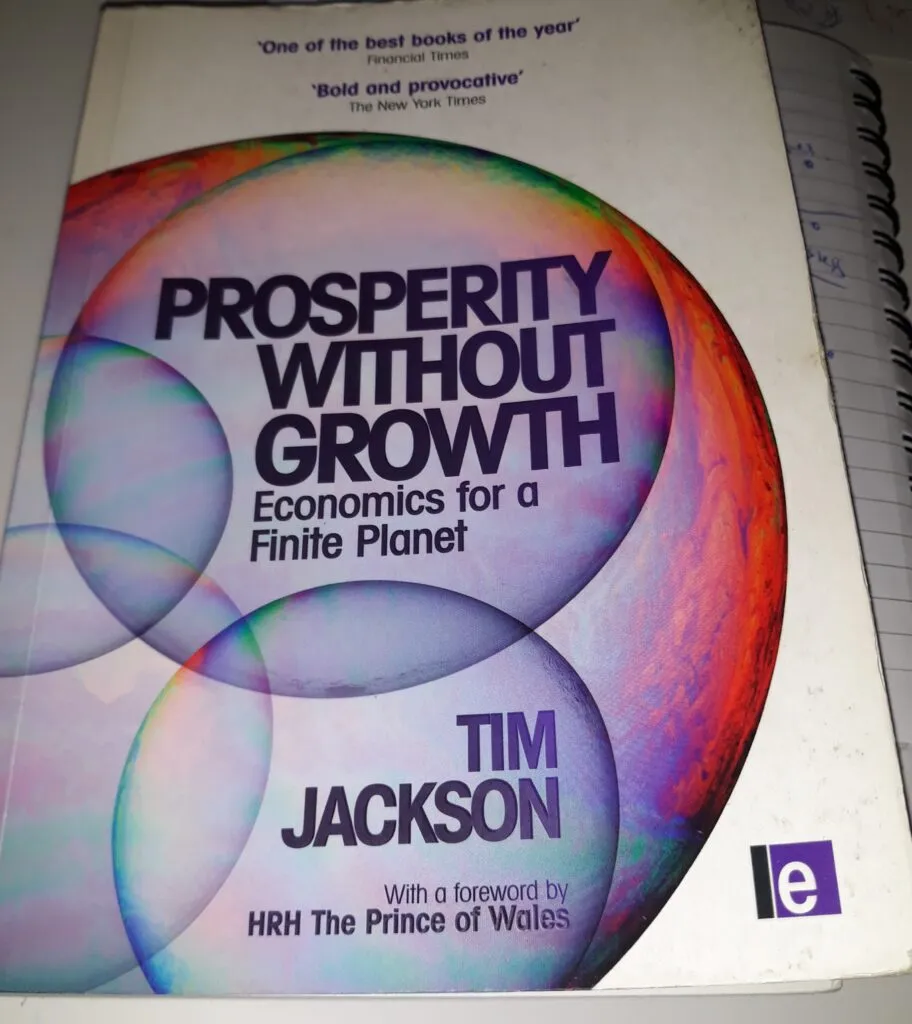Tim Jackson’s (2009) Prosperity Without Growth: Economics for a Finite Planet has been sitting on my bookshelf, unread, for nine years now!
It's kind of fitting reading what with Extinction Rebellion kicking off in London all last week.

I’ve finally got around to reading it and here’s a brief summary and a few thoughts:
The question at the heart of the book is ‘what can prosperity look like in a finite world of more than 9 billion people with limited resources’?
Prosperity is broadly defined in social progress – it’s about health and well-being, peace and security and the capacity of individuals to flourish in a social context, within ecological limits
Jackson critiques the broad political consensus, shared by nearly every country on earth, that continued GDP growth is necessary for social progress, and it is this assumption that this book challenges.
Jackson makes four main arguments against the idea that we need GDP growth for prosperity:
- GDP growth has delivered its benefits very unequally – a fifth of the world’s population earns just 2% of global income.
- Inequality within high GDP countries is often very high, with 20% of children in the UK being classified as being in poverty, for example.
- Once you get beyond an average GDP of around $15K per capita, any further increase does little to improve happiness or well-being in the population
- GDP growth depends on increasing consumption and here we face the problem of limits on resources and pollution sinks.
Probably the most interesting chapter (in the first half which deals with ‘the problem of relying on GDP growth) is chapter 6: ‘The Iron Cage of Consumption’ in which Jackson outlines the social and psychological lock-ins which are essential to growth in capitalist economic systems – basically continued growth requires people to act as consumers and be prepared to go into debt to maintain one’s social status and to reduce one’s own individual anxieties (note the contradiction here to prosperity as defined above).
One statistic which really highlights why we should question our reliance on continued ‘economic growth’ is that IF we have a global population of 9 billion all of them consuming at the rate of the typical American, then the economy would need to be 200 times bigger in 2100 than it was in 1950, or 15 times bigger than it was in 2009.
Surely all we need to do is look at the pressure on core resources now (land for food/ forests/ fish/ oil/ conflict minerals) and stats like that alone have to make us question GDP growth as being the primary goal of our society, but 10 years on from this book being written and this is STILL the primary goal, remaining largely unquestioned!?
Final thoughts on part 1 –
I’m already very familiar with all of Jackson’s critiques of our focusing on GDP growth, and this familiarity isn’t something I’ve picked up in the last decade since the book was written. Many of his ideas have been around for decades and are basically just classic ‘left-green criticisms’ of capitalist economics, so there’s nothing new in the critique.
However, it’s a useful summary/ reminder of these arguments, and the first half of the book is clearly written and coherent in its structure.
The second half of the book (chapters 7-8) deals with how we might achieve social progress (prosperity) without relying on economic growth. I’ll summarise that in the week (haven’t read it as yet!)
And yay! Back to my habit of the weekly read, or every fortnight at least!